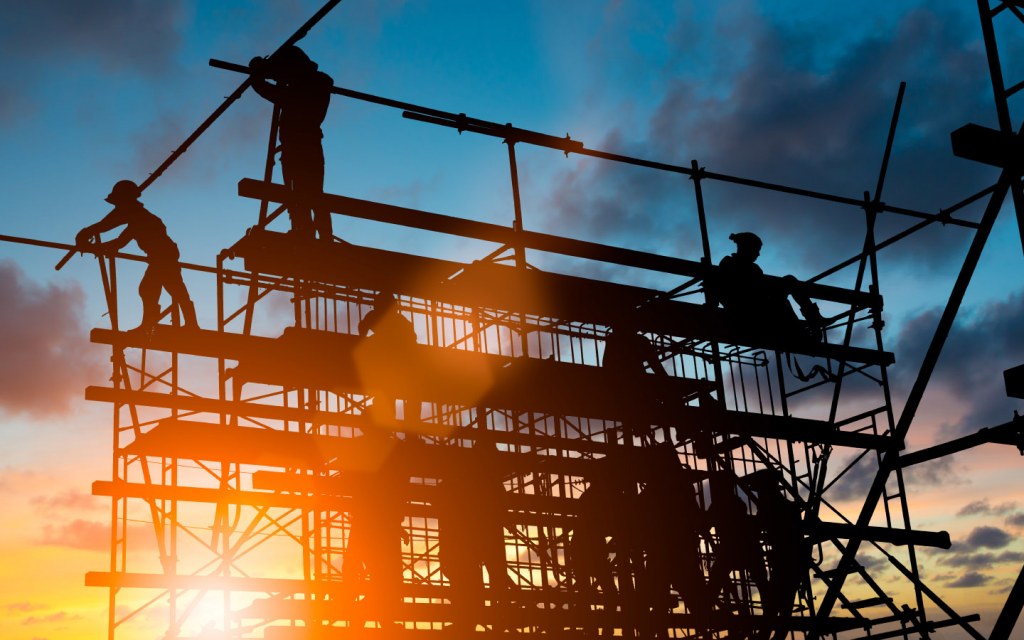Home » Laws & Taxes » Here Is How FBR’s Fixed Tax Scheme Will Impact the Real Estate Sector
Update (Jan 15, 2021): Federal Board of Revenue (FBR) Chairman Javed Ghani recently discussed the government’s widely-hailed tax incentives package during a recent meeting of the National Coordination Committee on housing, construction and development in Islamabad. According to a report published in Dawn, Ghani presented a review of the FBR portal and revealed that the construction activities in Pakistan, specifically in Punjab, have witnessed a significant increase. In addition to that, an increased number of builders and developers are also registering with FBR.
It is important to mention that the tax incentives package is only available to builders and developers who have registered their projects with the FBR.
Announced under the banner of the construction relief package, the fixed tax scheme exempts investors of FBR-registered projects from disclosing their sources of income.
You can find more about the prime minister’s construction relief package and how it will benefit the real estate sector in our detailed guide on the topic.
In a move to bring builders and developers into the tax net, the government of Pakistan has reportedly put together a simplified fixed tax scheme for real estate. According to a leading local newspaper, the new regime will substantially benefit the builders and developers of low-cost housing societies – such as Naya Pakistan Housing Program.
The Federal Board of Revenue (FBR) is expected to officially announce the finalized scheme shortly.
As per the report, the concerned authority will develop a central plan of action for the recipients. Property developers will have to get themselves registered with the Federal Board of Revenue through its automated IRIS system in order to benefit from the new tax regime.
Let’s take a look at how exactly the new fixed tax scheme for builders and developers is likely to affect the real estate sector of Pakistan.
What Does the Fixed Tax Scheme for Real Estate Sector in Pakistan Include?

To start off, the FBR real estate fixed tax scheme will provide concession to those planning to invest in low-cost housing projects, such as Naya Pakistan Housing Scheme. The tax rates for such builders and developers will reportedly be reduced by 90 percent.
Introduced by Prime Minister Imran Khan, NPHP is an ambitious scheme that aims to construct 5 million houses for lower-income Pakistanis in the span of five years. If you’re looking for more information on the project, don’t forget to check out the latest updates on the Naya Pakistan Housing Program, which has already taken off in different cities across the country.
Secondly, property developers and constructors will have to pay PKR 210 per square foot tax for the construction of commercial buildings in urban areas, including Lahore, Islamabad, Karachi, Hyderabad, Rawalpindi, Quetta, Peshawar, Multan, Sukkur, Faisalabad, Gujranwala, Sahiwal, Abbottabad and Mardan among other cities. Meanwhile, the rates for the construction of residential buildings will vary with each city.
Another way the fixed tax scheme for real estate will benefit the developers is by the creation of a dispute resolution committee. Moreover, there will be a national jurisdiction of builders and developers falling under the new scheme, as per the report.
The FBR fixed tax scheme for real estate will also make it mandatory for all contractors and builders to obtain a certificate from the National Engineering Services Pakistan, more commonly referred to as NESPAK. The certificate, accompanied by the covered area and layout plan of the project, will be presented to the FBR for approval. However, projects covering an area under 5,000 square feet will reportedly be exempt from fulfilling such requirements.

The individual builders, developers as well as real estate and constructions companies benefitting from the fixed tax scheme will have to file their returns as per the Builders or Developers Special Procedure Rules 2019. As per the rules drafted by the Ministry of Finance and the Federal Board of Revenue, the new tax regime will apply to builders, developers and companies who pay income tax and file returns under these rules. The income and payable tax will reportedly be computed on ‘project-by-project’ basis.
Property developers or builders availing the fixed tax scheme for real estate will be required to electronically file their returns with the evidence of payment of due tax. Individuals who have a National Tax Number (NTN) but haven’t filed their tax returns in the last five years can also opt for this scheme by registering through IRIS.
Furthermore, according to an English daily, the individual beneficiaries of the FBR’s fixed tax scheme for real estate will not be required to act as withholding agents. They will not be permitted to file adjustment claims for the collected or deducted withholding tax either. The same goes for claiming tax credit and refund. However, companies will be allowed to withhold tax on the purchase of certain construction materials, such as cement and steel, along with electronic equipment.
In addition to that, builders and developers who opt for this scheme will have to seek FBR’s approval for the construction of projects that exceed the three-year time limit introduced by the authority.
It is also important to mention these rules will be applied to relevant individuals, associations and companies all across Pakistan.
Please note the blog will be updated as more information is released.
Meanwhile, you can check out our in-depth explanation of property tax rates in Pakistan to understand how they are levied. You can also take a look at different types of property taxes in Pakistan for a better understanding of the topic.
To find out the latest updates on FBR’s fixed tax scheme for real estate, stay tuned to Zameen Blog, the leading real estate blog in Pakistan. Feel free to share your suggestions and queries with us on blog@zameen.com. You can also subscribe to our newsletter to receive the latest news about property trends and taxation schemes in Pakistan.



